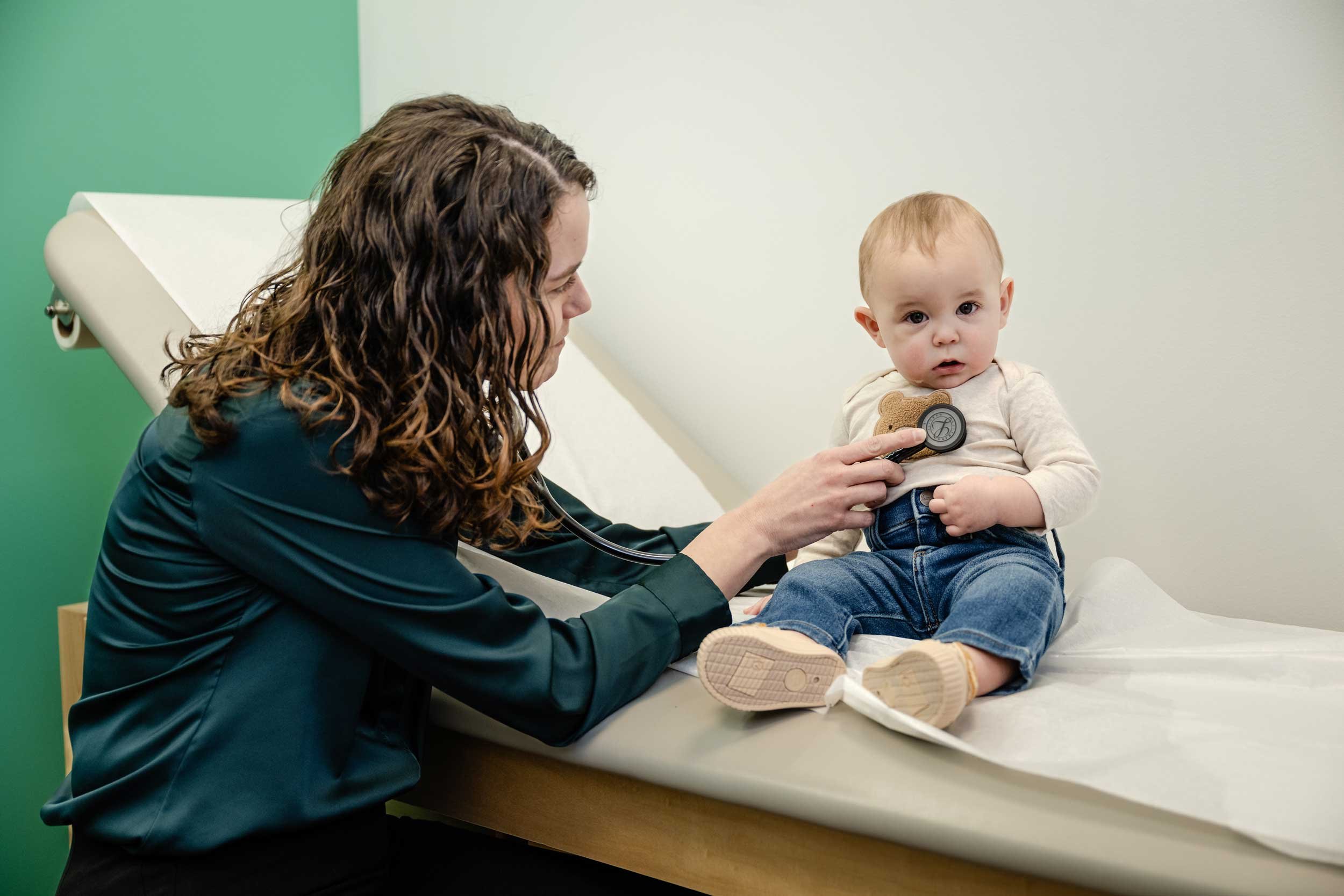
Services > Physicals
Physicals
Physical exams should be done by your primary pediatrician whenever possible. However, we know sometimes schedules don’t allow for that. In those situations, our pediatric providers accept walk-in appointments, allowing you to get your child’s physical performed at your convenience.
School Physicals vs. Camp Physicals vs. Sports Physicals
The American Academy of Pediatrics recommends school-aged children receive physicals yearly in order to assess overall well-being. Physicals may detect underlying diseases, such as heart conditions, asthma or diabetes.
There are three different physicals the pediatric providers at Care+ Pediatrics Urgent Care perform:
School Physicals
This comprehensive medical examination is often required by schools upon entry and should be performed at least once a year to ensure your child is healthy. It can also help to monitor your child’s psychological health and social well-being.
Camp Physicals
Camp physicals are similar to school physicals but take into consideration your child’s ability to participate in camp-related activities.
Sports Physicals
Sports physicals are used to identify any potential risk factors that may prohibit your child from participating in the sport.
What to Expect During a Physical
Regardless of the type, there are two different portions of the physical examination that your child can anticipate: the medical history and the physical exam.
Medical History
We will ask a series of questions about your family’s history with medical conditions like asthma, type 1 diabetes, type 2 diabetes, high blood pressure, heart conditions and more.
We will also ask your child if they have a past of experiencing shortness of breath, chest pain or fatigue while playing with their friends.
In the event your child has an underlying condition, our expert pediatric providers can work with your primary pediatrician to ensure your child gets the right course of treatment.
Physical Exam
The physical examination portion of the physical is much more hands-on than the medical history portion. Throughout this part of the physical, we may:
Determine your child’s height and weight
Take your child’s pulse and blood pressure
Check your child’s heart, lungs, abdomen, ears, nose and throat
Evaluate your child’s posture, joints and flexibility
Check your child’s reflexes
After your child’s physical, our pediatric providers will be able to determine whether your child is fit to participate in physical activities at school, camp or while playing organized sports. In the event an underlying condition is detected, we will be sure to notify your primary pediatrician and provide a referral to a specialist if needed.

